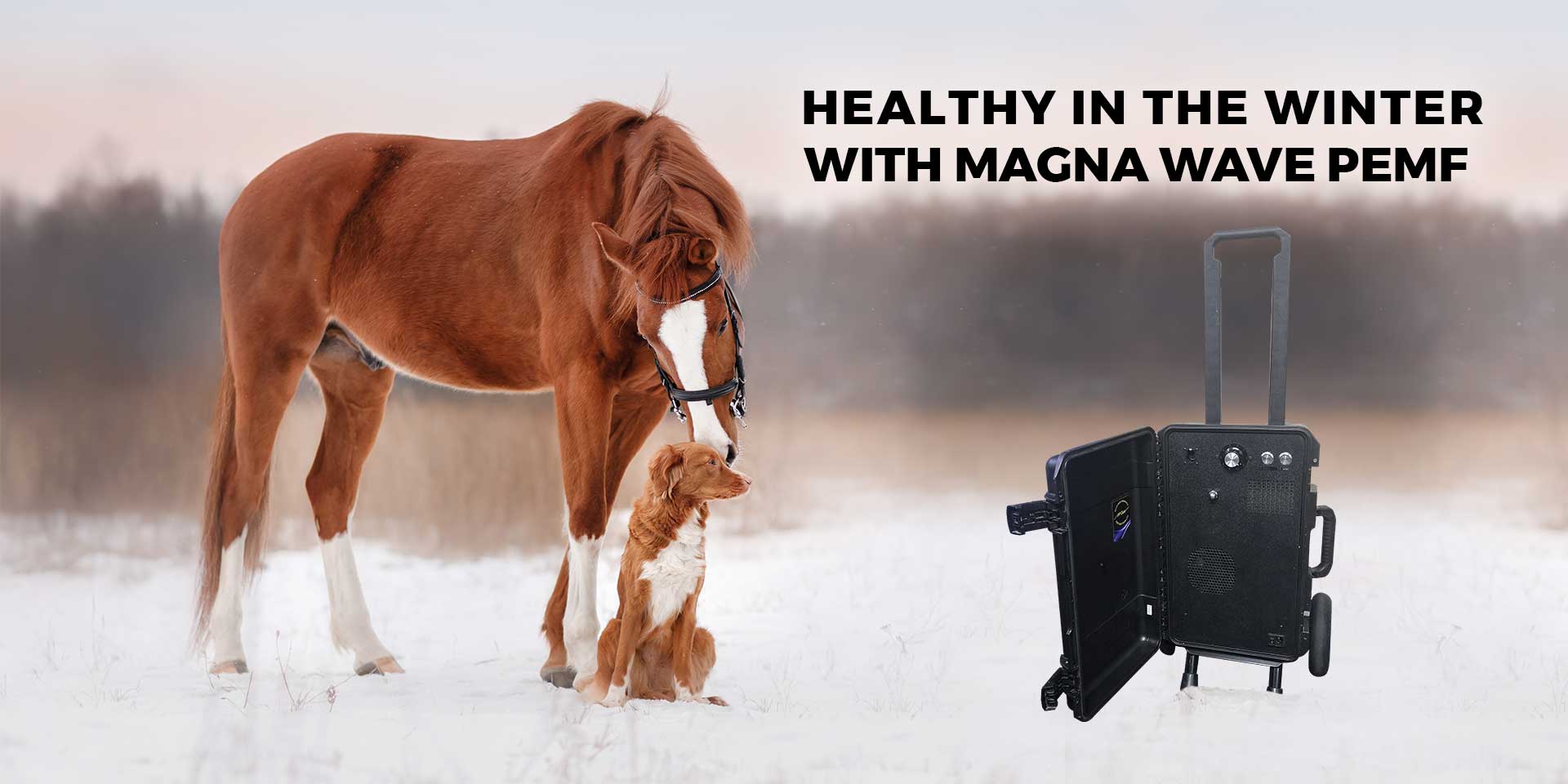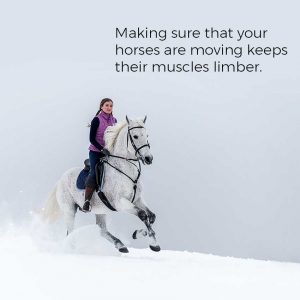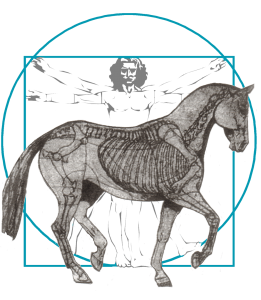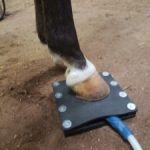How to keep horses and pets healthy in the winter with Magna Wave PEMF

HOW TO KEEP HORSES AND PETS HEALTHY IN THE WINTER WITH MAGNA WAVE PEMF
One of the main purposes of Magna Wave Wellness Webinars is to talk about integrative methods of treating and working with animals, small animals, and people. When it comes to caring for their health and well-being and their overall general wellness, Mr. Ziemer would like to cover many different topics, sometimes about people, sometimes about small animals, and about horses and pets in general. This week’s webinar topic was how to keep horses and pets healthy in the winter with Magna Wave PEMF.
Keeping Horses and Pets Healthy In Winter
Mr. Ziemer’s guest was no stranger to cold, a representative from Canada for Magna Wave, horsewoman Deanna Lonsberry had plenty of great advice for keeping pets healthy in the winter. Deanna came upon Magna Wave PEMF after taking a two-year equine therapy course. She lives in the Alberta area of Canada, and after a recent conversation with her, Mr. Ziemer knew she had important winter care information that needed to be shared.
“Winter care up here is very important,” says Lonsberry. “I think it’s highly overlooked. We have seasonal temperatures that dip to minus 30 sometimes – 40 Celsius which is between minus 22 and minus 40 Fahrenheit. So, it gets really cold up here.”
What you would do, dealing in the cold temperatures, that is imperative when it comes to keeping horses and pets healthy in the winter?
“That’s a great question,” Deanna says. “There’s several different aspects to look at.” A lot of her clients keep their horses stabled in heated barns. Which is great. The issue with that is proper turnout. Horses need to be in movement in order to function properly. Making sure that your horses are moving keeps their muscles limber.
Sometimes it’s almost impossible to ride where Deanna lives, if you don’t have a heated barn, or proper facilities to ride in. A lot of her clients that aren’t in the show horse world, will stick their horses out to pasture. “That’s a big issue,” says Lonsberry. “Because not keeping those horses fit, they enter a kind of retirement period.”
Exercise Is Essential
Make sure that the exercise is consistent, Lonsberry tells Mr. Ziemer. If you’re riding consistently in the summer, try to keep periods of consistent riding in the winter as well. Just like an athlete, if you’re in training and you go into a period of remission, your muscles are going to start to deteriorate. You’re not going to have the cells functioning at a normal rate.
Deanna explains that the body experiences more stress in colder climates, which takes more energy to process nutrients simply for it to function right. Some things she looks at are:
- Nutrition, good forage
- Proper training
- Salt
- Electrolytes to keep horses drinking
We know about the importance of hydration to keep horses and pets healthy in the summer, but winter?
“Yes,” says Lonsberry. “That’s where I’m going with the exercise. When horses aren’t moving they’re not going to consume as much water. Also, if the water is cold they’re not going to be drinking as much as they would at a warmer temperature. It’s going to take more energy for them to consume that water, so the body is in a more high-stress environment with the dips in the temperature.”

When you talk about exercise, that means you have to be outside and the horses have to be outside or in an indoor arena?
It’s not uncommon for there to be beyond six inches of snow, where Deanna lives. Riding outside gets very challenging. She says they’re usually forced to halt through especially cold periods if they don’t have access to an indoor arena. Where she lives she’s about 45 minutes one way to a facility that’s equipped for riding. And the entire process will take up the majority of a day. “You’re looking at proper warm-up, exercising them, training and then cooling them out,” says Lonsberry. “That process is usually about one to two hours given from the time you start your warmup up to seeing that your horse is properly cooled out, in order to blanket.”
As a practitioner she tends to treat after riding because there is cool up time, when you have to allow your horse to dry before blanketing and hauling. Deanna tells Mr. Ziemer, “That tends to be when I actually perform my Magna Wave treatments in the winter time. It works well for me.”
Can you cause a problem if you don’t blanket them properly?
“Yes,” says Lonsberry. “Over-blanketing can definitely be an issue. Of course, the body creates heat it digests, so if you have a horse over-blanketed that heat can’t actually escape. You can actually put more stress on the body.” Deanna goes on to say that if she’s going to blanket, she starts blanketing in early fall and gradually builds up so the horse can lose their coat. Otherwise, if she’s not going to blanket she doesn’t blanket at all. Lonsberry prefers to let her horses go natural if she can.
Will they grow that you coat to the climate that they’re in?
Lonsberry says, yes, they will. She sees that in horses that are transported. In fact, she had a horse from Tennessee come up in April that ended up growing a coat because when he arrived there was snow. “It was a culture shock for him,” Deanna admits. “But he pretty much haired up the entire first summer I had him, adapting to our climate.”
You touched a little bit on the freezing aspect and the trouble you have with them drinking cold water or frozen water. How do you deal with that?
“I am fortunate I have automatic stock waters so they have a heating element in them,” says Deanna. “That keeps the water relatively warm which encourages the horses to drink. If they short out they can get hot though, so we do touch the water to be sure it’s not overheating.”

 If someone is not in a competitive nature and they’re just trying to keep their horses and pets healthy through the winter, what are the benefits from Magnawaving with regard to muscle flexion and keeping their blood circulation moving? And what is ideal consistency in your environment?
If someone is not in a competitive nature and they’re just trying to keep their horses and pets healthy through the winter, what are the benefits from Magnawaving with regard to muscle flexion and keeping their blood circulation moving? And what is ideal consistency in your environment?
Lonsberry likes to gauge that on each individual horse when it comes to how often she’s Magnawaving. “I really like to get to know my clients,” she says. “For some of my clients, consistency is once a week, for others is two or three times every other week.” It depends on what’s going on with that horse and what’s going on in that horse’s environment.
Some factors Lonsberry takes into consideration include:
- The horses age
- What kind of nutrition the horse is receiving
- What kind of a training program those horses ran
- Some horses are actively showing (more stressful)
- Some are just being ridden by their owner’s children through the winter (less stressful)
When you’re Magnawaving in the summertime you’re looking for suppleness and range of motion. What do you look for to keep horses and pets healthy through the winter with Magna Wave PEMF?
Lonsberry checks range of motion on her horses before and after each treatment. She likes to see what the flexibility is of the spine, of the limbs. She looks to see what those muscles are doing, if there’s any tension to the body. If there is, she focuses on those areas first.
“I have an assessment that I do on all my client’s horses prior to my treatment with Magna Wave,” says Lonsberry. “It gives me an idea on the progress I’m making and how I need to adjust treatments. Even with inconsistent Magnawaving, I’ve seen some incredible results in my client horses.”
Warm-Up First, Please
Deanna goes on to say that she prefers the horses be warmed up prior to treatment, encouraging her clients to lunge their horse. During which she may look to see if they’re tight. “Even with ourselves,” she says, “When it gets cold we get kind of tensed up and it’s really no different for horses.”
If it’s possible, Deanna has her clients bring their horses into a heated environment. Preferably about an hour before she starts Magnawaving. That gives the body a little bit of time to relax and kind of become acclimated.
Cold weather can be hard on skin. What about skin issues and the Magna Wave from your perspective? Is Magna Wave helpful with those types of issues?
When she’s dealing with skin issues on a horse Lonsberry looks at how the body’s functioning overall. “It’s kind of my belief and from my training, a lot of times when we have skin issues it’s a form of toxicity,” says Deanna. “So, when you look at toxicity Magna Wave is incredibly beneficial for helping to detox the body.”
“We understand how Magna Wave PEMF works with the lymphatic system.” Deanna says. “When it’s increasing the circulation, it’s going to actually increase the lymphatic fluid going through the cells as well which helps to eliminate toxins from that cell by increasing cellular metabolism. So, for instance, you’re dealing with a horse that often has like a buildup of crud. When I see that I start looking at digestion and nutrition type of underlying issues with that particular horse.”





